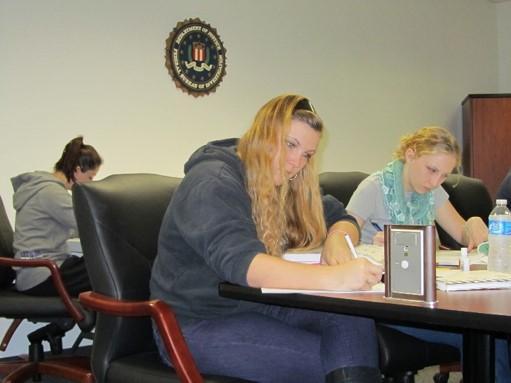 The nexus between academic theory applications in the field can be elusive. Marshall Jones, a retired practitioner and founder of the forensic psychology program, envisioned the utility in using properly selected and trained students to conduct applied criminal justice and behavioral research. Bridging theory and practice can help inform decisions in the field and provide student researchers real-world opportunities to apply classroom lessons.
The nexus between academic theory applications in the field can be elusive. Marshall Jones, a retired practitioner and founder of the forensic psychology program, envisioned the utility in using properly selected and trained students to conduct applied criminal justice and behavioral research. Bridging theory and practice can help inform decisions in the field and provide student researchers real-world opportunities to apply classroom lessons.
The mission of the Center for Applied Criminal Case Analysis (CACCA) is to develop and deploy innovative applied techniques in response to field driven inquiries regarding the micro and macro factors of criminal case analysis. The CACCA faculty, students, and alumni researchers are operationally responsive to time-sensitive issues from criminal justice partner agencies.
CACCA partners with federal and local law enforcement agencies to explore unique problems and questions that traditional data sources do not address. CACCA’s strength is innovative research methodologies including data-mining of offender and victim files and records. CACCA has developed and deployed custom instruments for criminal case file analysis and presentence investigation reports. Research findings have helped inform policy and practice for several agencies. Faculty, students, and alumni have presented numerous academic papers and posters as well as presented findings for practitioner training and conferences.
Interested students must have a GPA above 3.0, have successfully completed forensic psychology courses, and be able to pass a criminal background check to be considered for participation as a student researcher. Interested students should contact Marshall Jones via email.
Law enforcement agencies interested in research assistance should call 321-674-7146 or email Marshall Jones.

 Give to Florida Tech
Give to Florida Tech 